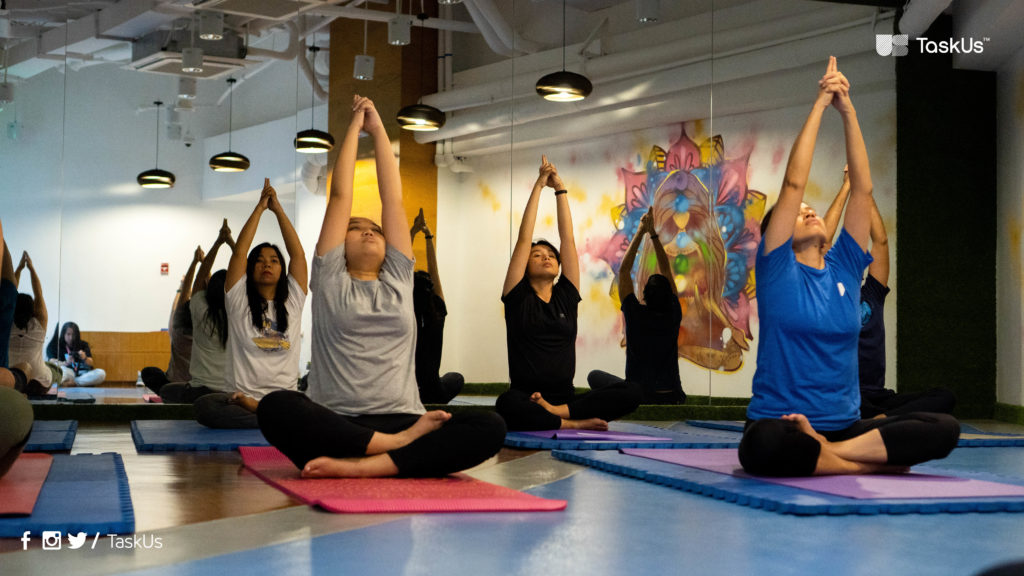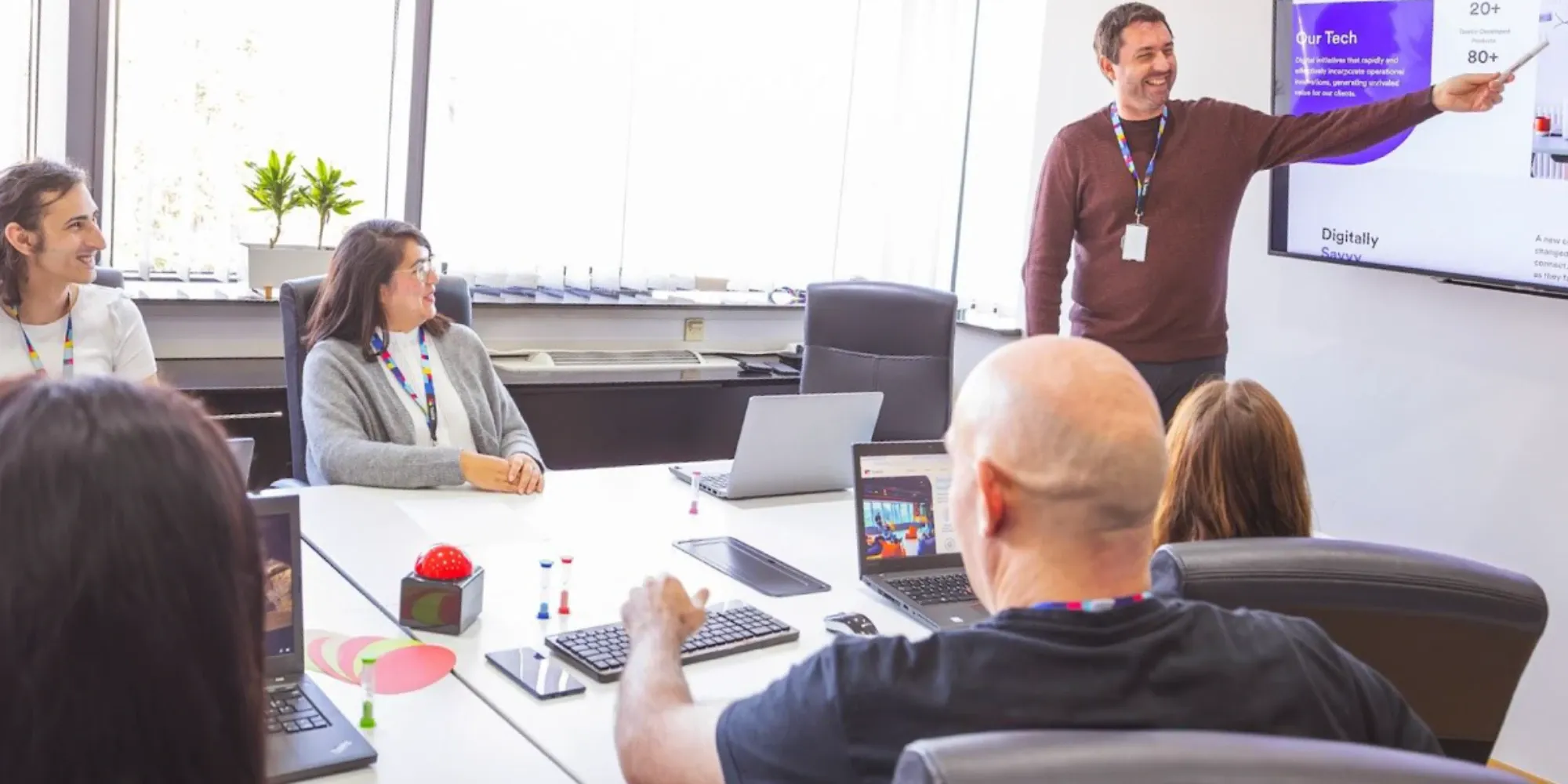Many continue to find themselves in a remote work setup, which has its blessings and challenges. For one, working from home may be agreeable when taking into account the costs associated with traveling to a physical office. Still, a number of factors affect the success of a virtual workspace, including the mental wellness of employees.
And it has not been easy for everyone—even after more than a year.
Likely to stay even after the pandemic, a remote work setup takes a huge toll on employees' mental health. Research shows that 89% of workers aged 22 to 25 and 83% of those aged 26 to 37 said they experienced more stress and anxiety as work spilled over into personal life due to the lack of boundaries. Employees found it hard to draw a line separating their professional and personal spaces.
In a social media content collaboration with TaskUs, mental health advocate Dr. Gia Sison said that employees are now more aware of the workload they are getting as work and home responsibilities become important and urgent all at the same time. As balancing work and personal life skews, “employees have learned to finally speak up.”
Sison explained that today’s virtual setup has encouraged employees to be heard and let their concerns be known—in black and white via email, for example—as mutual, physical conversations with colleagues are still far from reach.
Being attentive to these conversations from employees, company leadership may just learn the secret of how to remain competitive in this time of a pandemic. This, on top of getting to know one’s employees better.
Developing resilience
Addressing employees first, Dr. Sison said “we tend to magnify how negative working from home is” that the positive impact of remote work is often overlooked. And this includes developing resilience whenever faced with a crisis or challenging situation.
“Resiliency is something that we were born with,” Sison said. “It will develop and will keep on evolving every day. It is built on failure. It’s built on a lot of nights that you cry yourself to sleep.”
In a professional setting, it is one’s mental resilience that is developed especially now that uncertainties remain as to when the pandemic will end and the future of work.
Having to gauge, respond, and overcome stressful situations and distractions is critical to work productivity. Employees must know how to develop this skill knowing that it greatly affects their decision-making and ability to think and complete tasks especially when their attention is challenged by a lot of other factors at home.
“Those who are able to practice being mentally resilient are already a step ahead towards achieving their professional goals,” said Sison, adding that a clear sign of a highly resilient employee is one who knows how to push back on and effectively manage the pressures from work when needed. And voicing one’s concerns about the challenges brought about by working remotely is a healthy outlet for employees to keep their mental health in check.
The role of employers
Communication is a two-way process: when one talks, the other listens. Company leadership should take an active role in intently listening to understand their employees. Recognizing employee battles in and outside their professional life is the first step to a healthy and well-rounded workforce that goes the extra mile to support management.
“It is important for employees to know that the organization they belong to cares about them and is always available when they need help,” Dr. Sison said.
As a case in point, TaskUs had already established solid efforts for employees’ mental health even before the pandemic through designed and data-supported programs. And the company’s Wellness & Resiliency department dedicated to employee well-being was able to improve on these programs as the company shifted its global workforce of more than 20,000 employees to work from home in early 2020.
Presently, TaskUs offers virtual mental health consultations and sessions for its employees 24/7 for free. This is on top of 700 hours of digital wellness content and Employee Resource Groups (ERGs).
The company is also committed to let its employees balance work and personal life by establishing meeting-free Fridays, no-chat weekends, and a requirement of a truly unplugged vacation.

A culture of resilience and success
For TaskUs Vice President for Global Wellness and Resiliency Rachel Lutz-Guevara, a successful employee wellness program goes beyond having a ready menu of services. “It boils down to embedding these services into a company’s culture and seeing leaders lead by example.”
Lutz-Guevara said that leaders have to exhibit vulnerability, healthy boundaries, and show high emotional intelligence through effective communication, mindful leadership, and consistency. Hearing from the company’s leaders themselves will help employees build their trust in the company and its programs.
“TaskUs believes that employee experience should be at the heart of everything starting day one. We invested in our people early, heavily, and with purpose. And as a result, we now proudly lead the industry thanks to an empowered team,” she said.
An established advisory company shared that companies who extend their support on employees’ mental health increased their number of high performers by 21% compared to organizations that don’t provide the same degree of support.
Lutz-Guevara added that a mentally resilient workforce has an impact on clients too, as clients are receptive and ready to invest in companies that evidently place much importance on employee well-being. “Our clients show an increased trust, which allows for more autonomy in our working relationships.”
To survive in a competitive landscape made more challenging by the pandemic, companies need to start listening to and investing in their people in view of their mental health. It’s a tried and tested route to success.
References
-

TaskUs and Mavenoid Announce Strategic Partnership To Enable AI-Powered Product Support
5-MIN READ -

TaskUs to Present at William Blair 44th Annual Growth Stock Conference on June 5, 2024
5-MIN READ -

TaskUs and V7 Announce Strategic Partnership To Enable Enterprise AI Product Delivery
5-MIN READ -

TaskUs and GCash partner to plant 10,000 coffee seedlings, support local coffee farmers
5-MIN READ -

TaskUs Elevates the Customer Experience With the Launch of AssistAI, Powered by TaskGPT
5-MIN READ -

TaskGPT Launches in Zendesk Marketplace, Giving Customers Access to Leading Generative AI-fueled Customer Service Solutions
5-MIN READ -

TaskUs recognized as the Leader in the 2023 SPARK MatrixTM for Financial Crime and Compliance (FCC) Operations Services by Quadrant Knowledge Solutions
5-MIN READ
We exist to empower people to deliver Ridiculously Good innovation to the world’s best companies.
Useful Links




